#rip the golden age..............
Text
season 6 is worse than i remembered lmao but the polymorph 2 episode does have rimmer explicitly calling lister "my love" so
#red dwarf#its when his negativity goes and he turns into ace#season 6 they were really like ''no more red dwarf in our show red dwarf fuck holly also lets just replay the hits''#also love how they all became extremely competent spaceship pilots overnight#its different from previous times when they took starbug out theyre doing all kinds of complex maneuvers#and cat can suddenly smell things happening in deep space#ok heres how you know season 6 is bad; the cat REPEATS OUTFITS#he wears the same thing like three times#and what do i have to look forward to?????? the fuckin crew revival#rip the golden age..............
19 notes
·
View notes
Photo

Rest in power Dave aka Trugoy The Dove
324 notes
·
View notes
Text
Griffith's Relationships (6)
The White Hawk. The White Phoenix. The King of Falconia. The Savior. Femto. The Blessed King of Longing. Once, the greatest mortal to ever wield a sword. The bane of the Black Swordsman. The most beautiful man alive. Him with a stature nothing short of pure magnificence. You know him. You love to hate him. I’m talking about one of the greatest characters not just in manga, but in all of fiction: Griffith.
Griffith is one of many examples of how masterful Kentaro Miura was with a pen, be it pressing against a notebook or a panel. An incredibly written character, as complex as they can come, with some of the most complicated, deep, and tragic relationships I’ve ever seen put to any form of media.
Today, I’ll be discussing what is inarguably a core tenet of Berserk: Griffith’s relationships. With two exceptions, there is no dispute that Griffith’s relationships are not the singular most important part of the media he resides in, there is no debate over whether or not they are still crucial parts of understanding both Guts’ disposition, and the world of Berserk itself. Griffith’s different approaches to interacting with those in his vicinity warps the very world itself, and his whims shape the very nature of the conflicts the protagonist engages in.
Here, we will be discussing Griffith’s most important relationships through Berserk, how they shaped him, and what they explain about who he is and how he got to where he is now.
Part 1: The Boy, and The Hawks
Part 2: The Governor.
Part 3: The King.
Part 4: Charlotte.
Part 5: The Wings of the Hawk (1)
Part 6: The Wings of the Hawk (2)
______________________________________________________________
Part 6: The Wings of the Hawk (2)
Love. Hatred. Love and hatred and a burning, smothering, suffocating desire. Those are the things that define how Griffith felt about Guts. There is no other way to put it. There is some amount of discourse around whether or not Griffith’s attachment to Guts is platonic, romantic, sexual, or whatever- I am here to tell you that it does not matter. (but to be clear, it is at least a little gay. Sexuality and attraction are a spectrum, and something can be homoerotic without necessarily being homosexual. But the undertones and subtext in much of Griffith’s interactions and feelings towards Guts is there. It’s pretty clear.) Griffith’s emotions are so garbled, his feelings, how he perceives the dynamics of lust, love, affection, appreciation, power, and control are so tangled up and destroyed by even the time he meets Guts, that every single interaction involving any of those feelings has to involve all of them. They are so inextricably connected through trauma and his history that their influences on each other must be taken into account.
Like at their very first meeting. While Griffith had spotted Guts when he fought against Bazuso, noticing the insane, borderline-suicidal tactic that Guts had used to best him, their first real exchange is after Guts killed some of his men, and was about to slaughter Casca and Corkus. Griffith bears no ill will towards him, merely asking, “Would you lower your sword?” When he sees Guts’ reaction, he reluctantly continues, “I guess not…” before parrying his swing and relatively gently disarming him with a strike to the armpit. A few days later, after Griffith ordered Casca to assist him in staying warm, as was, supposedly, her duty, his first words to him are to compliment his strength and swordsmanship, admitting he could never wield the way Guts does. Later on, in the same conversation, Griffith puts all his chips out at once with a single statement, point blank: “Because I realized I want you, Guts.” Guts rebukes this because of his own personal issues, and Griffith’s response is casual, asking what Guts will do, and admitting that he does not dislike violence as an answer when that response is violence. It’s all laid out here. “I must obtain the things I desire.” Whatever Griffith thinks this means, however he intended it, it’s perhaps the most honest summarization of himself in the series.
And then, they fight. And all this does is improve Guts’ status as an object of Griffith’s desire. He is unwavering, willing to put life and limb on the line with every swing. He has incredible spur-of-the-moment plans that work in his favor, incredibly absurd strategies that somehow sway the tide to play to his strengths. He even manages, if only for a moment, to flip the script on Griffith, getting some very solid hits in before Griffith ultimately incapacitates him. And from here; Griffith is certain. Guts is his, and Guts will be his, and Guts will be the best thing he has ever had. Despite Guts’ issues with Griffith at this point, Griffith immediately begins entrusting him with very important, vital parts of the Hawks’ survival. The next mission, he is assigned to head their rear guard, making sure the Hawks are not overrun by enemy soldiers as they flee from the raid they are to perform. Most people think Griffith did this on purpose, as Guts would either run away or get slaughtered. But a few understand what this assignment really means- Griffith trusts Guts 100%, already. Later in that mission, Griffith even returns to save Guts after he put his life on the line to save more men. They play together, and Griffith strikes a chord deep in Guts as he proclaims he will one day have his own kingdom, sparking something that will lay dormant for years, but eventually fire back at him. And he puts more faith in Guts all the same, entrusting him with 10 men after his first mission, the number only increasing as Guts proves more and more why Griffith’s faith is not misplaced.
They play off of each other very well. Guts is reckless, but fierce, and loyal. His skill with a sword is matched only by his willingness, an almost insatiable itch, to swing. And Griffith is just as skilled, just as fierce, but his strength lies not in his strength, but in his ability to plan, to account for Guts’ ferocity as part of his overarching goals. And together, they ascend through Midland’s army, Griffith becoming nobility as they begin to turn the tide against Chuder. The relationship reaches its ultimate test when Griffith puts his life on the line to assist Guts against the legendary battlefield hurricane, Nosferatu Zodd, the immortal mercenary who’s torn war fields to shreds for over a century. Risking and losing soldiers by the dozen, his own life hanging by a thread after the fact, forcing Casca to take the others and retreat, Griffith cements here the idea that Guts alone is worth the risk, and potential forfeiture, of his own life. But Griffith counts on their combined will to see them through the day, the combination of their strength, endurance, and the combined fate they both share. And as the Crimson Behelit drives the creature with the inhuman name Nosferatu Zodd off the battlefield, it only ascertains to Griffith that he and Guts stand above in terms of what they are capable of, and what they are fated for. Only the two of them could have possibly survived long enough for the Behelit to come into play as a deciding factor for their lives in the first place.
And this is Casca’s issue when she argues with Guts, asking what exactly it is that Griffith sees in him. Of course, she recognizes that this only happened to Griffith because of Guts. But what she fails to accept in the moment, and what even the two themselves don’t quite know or understand, is that this would not have happened to Griffith if it was anyone but Guts. When the rumor of Zodd’s appearance is shared, it is no one but Guts who is Griffith’s primary concern. Not all the men in the castle. Not all his warriors on the field. Not the others he has deemed as captains around him, who would have to fight the beast should Guts fail- it is Guts alone which occupies Griffith’s mind.
And after Griffith heals from his injuries enough to walk, what does he do? He goes straight to Guts, who is training despite clearly still being injured. And he does something he has never found reason to do- he justifies his behavior, and explains why he is doing what he is doing. If Guts does what he must on the battlefield, Griffith does whatever he must to gain favor, approval, and less prestigious advantages, but advantages nonetheless, as the face of the Hawks. He must navigate the battles of political intrigue, the shifting tides and domineering armies of the royal court, the same way Guts must lead the raiders to a battlefield where blood is spilled instead of secrets and gold.
And once again, Griffith is frighteningly transparent to Guts here. And once again, Guts does not understand.
Why, he asks, does Griffith continue to stake his life over one, single, lone soldier, out of his army?
And Griffith’s answer is clear:
“Tell me…
Do I need a reason each time I put myself in harm’s way for your sake?”
It could not get any more obvious than this. Griffith is a man of a million reasons, a man who juggles complex logistics the same way we might a pair of fruits. And yet, here he is, admitting that despite the facade of logic, and cold, calculated reason that he shows, there are things he values beyond that. Rather, his language makes it clear. A single thing. One thing, beyond all others, that he is willing to put himself at death’s door for. Guts. And still, Guts does not understand the weight behind the words. And, in his fairness, Griffith is a man of shocking truths behind muffled and insulated airs. He hides each dagger behind a smile, and each motive behind further motives still. And yet, this here is the unadulterated truth. Guts is as valuable to him as his own life.
And this continues for a long time. Guts is told Griffith’s plans, his information, things that he has shared with no other soul, given glimpses into plans years in the making, even let in on and participating in Griffith’s plans to assassinate many of the nobles and royalty that stand in, not his, but their way to prominence. And during these missions, Guts makes decisions that he regrets, that cause him to spiral, that cause him to question his allegiances and his devotion to Griffith’s dream. And one day, he hears Griffith wooing Charlotte, and Griffith says something to her.
“What I think a friend is, is one who is my equal.”
This something is what finally widens the schism in Guts’ heart. He feels as though he is not Griffith’s equal, that he has no greater aspiration for himself, that he currently just is not worth being Griffith’s friend. But what Guts does not understand here is that Griffith is blustering. Guts is already the closest thing Griffith could ever consider an equal. Guts is already the thing Griffith can consider closest to a friend, a soulmate, a partner, a lover, whatever you can call what Griffith would truly regard as an equal. Whatever Griffith says here about his stance, there is nothing that Guts can say or do that can advance himself any further in Griffith’s mind.
And this is proven on the fated day. The day that Guts finally decides to challenge Griffith once again. To Guts, this is the first step in a long journey, a journey to prove not only to Griffith, but to himself, that he is worthy of being held in the same regard as the lofty ambitions that occupy the primary space in Griffith’s heart. But to Griffith, this is nowhere near the same. This is not Guts attempting to prove his kinship- far from it. This is treason. This is near-blasphemous. This is the ultimate betrayal. He is attempting to remove himself from not just the Hawks, but from Griffith. Guts is rebuking everything that Griffith has extended towards him, and in turn, Griffith himself. Griffith’s poisoned understanding of relationships makes this as seething and burning as it is heart-wrenching for Guts. For Guts to denounce Griffith’s only true feelings amongst a sea of affectations that Guts alone should be able to see through? Why, this is the same as spitting in his face and asking to be apologized to. And as Griffith once said, he is not a man who dislikes violence as a solution. So, the two stand off. And in a non-verbal exchange between all the characters present, something is made absolutely clear once again: This is, far and away, the most devastating misunderstanding that could have possibly occurred here. But the fault does not fall solely on either of them individually.
Guts has, at this point in time, made his goals in leaving very clear. Very clear, that is, to everyone except the White Phoenix General himself. The man before him, Griffith, has no understanding of the true motivation Guts has besides the fact that Guts indeed wants to leave. And that is the only information Guts gives him. And on Griffith’s end, he can see no other reason that Guts wants to leave, other than to simply be rid of him. While they are stanced, readying themselves to engage, Guts is thinking about how, at the very least, Griffith being willing to fight him means he is still willing to spill blood over Guts, including his, and including his own. Griffith, on the other hand, is having a meltdown. His focus wavers. He spirals out, thinking to himself:
“Do you want to go?
Is this how badly you want to leave my grasp?
You can’t. You can’t! I won’t have it!
I won’t let you!”
As he thinks on how to defeat Guts, he falls on a single option that might potentially end his life here. But in this manic state, the first time witnesses besides Casca acknowledge that Griffith’s usual poise is completely deserted, he acknowledges this and continues on:
“Even then… if I can’t have him, I don’t care!”
But, he does. Oh, so obviously, so clearly, he does. And when Guts beats him, calmly, without harming him at all, Griffith collapses, dropping his rapier. He is completely, utterly broken with this single swipe. Guts simply tells him, “Take care.” And he leaves the Hawks. And he leaves Griffith, alone. Sure, the other commanders, the other relevant members of the army are there by his side. But what does that matter? Griffith has finally been bested. Not just bested, humiliated. It has been asserted in no uncertain terms that he does not have the sway he thinks he does. And that, in his eyes, his camaraderie, his trust, his faith, his love, is not worth holding on to.
So he goes off. That same night, he gallavants with Charlotte, taking her virginity, and during the whole act, despite him almost claiming Charlotte, assuage her fears and pleasuring her, it is Guts who dominates his mind. It is Guts he sees as Charlotte orgasms, and it is Guts’ voice he hears as she cries out. All he can envision as he asserts himself onto this girl, who is in completely and utterly helpless love with him, is the only man he truly cared for, giving him one final good-bye. Charlotte does not notice his thousand-yard stare, his vacant eyes. But we do. And we see that it is Guts that rules his decision-making. Even after they make love, all he can do is caress the mark on his shoulder that was left from Guts’ blade, and cry in Charlotte’s bed. Griffith is arrested for this act of high treason, and sent to rot with the torturer in the deepest dungeon in Midland. And with all of this happening, throughout the entire year of his torture, slowly being driven mad, trapped in the darkness with only his thoughts and the torchlight of the thing hired to bring him naught but suffering, chained and strung up, he has no words besides the last he had uttered.
“...Yes. Worthless. This is worthless.”
And in that infinite darkness, when time flows as it stagnates, when brightness flashes dull, there was a single thing, not keeping him sane, as his sanity was up for question long ago, but keeping his consciousness anchored to this mortal coil- Guts. every time he envisioned his face, every feeling he could still feel stirred within him.
“Malice, Friendship, Jealousy, Futility, Regret, Tenderness, Sorrow, Pain, Hunger… So many recurring, yearning feelings. That giant swirl of violent emotions in which none are definite but all are implied.”
Griffith even finally acknowledges that, at the end of this raving speech in a madman’s perpetual dying gasp, perhaps… perhaps his goal was no longer the castle on high. Why, he asked, in this vision in his light, did the castle’s glow reduce to a pale shimmer compared to the sight of his face, the sound of his voice, the mere idea of his presence? Since when did Guts get the grip over him that he had so firmly, so soundly, over Guts instead?
Since when did Guts become Griffith’s dream?
And who else could lead the charge to save him from this endless nightmare, but his waking dream himself? When Griffith’s eyes open, and there is not pure darkness, there is Guts. After a long, brutal year, the first thing he sees is none other than Guts. And his first instinct after all this time, after all the suffering, and prolonging in turn, Guts has caused him, Griffith seeks to choke him. And what does Guts do, after seeing the man to whom he aspired, crippled and weakened to the desperate state he was in? He cries. He cries over Griffith, who softens his grip, and instead grabs his hand.
After their escape, where each of the commanders of the Hawks puts their lives on the line to save Griffith, killing the Bakiraka and the Black Dog Knights, finally, Grifith is returned to the light in peace. But through it all, Griffith realized his body was in tatters. He had no strength left to hold a sword. He could barely mouth words, and speaking was out of the question through the loss of his tongue. And through it all, he saw Guts perform. He was a demon in battle, his strength incalculable. He tore through man and Apostle alike. His every word carried the gravitas of a leader for decades. He did not carry the same incredible airs as Griffith, but every word carried with it a domineering force. The men respected him, and they would follow him to the ends of the earth. With or without Griffith to lead. In fact, they insisted. And Griffith had even overheard the very moment that Guts truly had stolen away Casca- evidence abound both before and after she vented about how pitiable his fragile form had become, and how much time would be needed to gently nurse him back to health. If he could even return to a state where he could live on his own again, of course. And only after the horrific embarrassment, the final stripping away of Griffith’s mystique, his humanity, at the hands of Wyld, the leader of the Black Dogs.
And somehow, motivated by a hallucination, or perhaps a waking dream, Griffith manages to take off with a carriage, before being vaulted into the air, and landing in the lake. The lake where he attempts to take his own life. The lake where the Behelit lies. The lake where, after all this time, the Eclipse occurs.
And we know what happens in the Eclipse. We are well aware. And we know what happens with Casca, and Griffith, and Guts. And during this transformation, where Griffith supposedly reaches this ascended, emotionless form, he does but one thing. He still, after all of this, wishes to put Guts through the same torture, same repulsive emotions that he went through in that dungeon. By taking away from him the one he loves. By stripping him of his aspirations. After all, the only thing that can equal the loss of a dream, is the stripping of a dream in turn. But through this act, he shall never have the one thing he had wished for. He is the Blessed King of Longing, and forever shall he desire.
______________________________________________________________
Griffith is a complex, multi-faceted, tragic, broken character. More occurs later on with him, and with Guts, and Casca, and with the straggler of the Hawks who was saved by the Knight of Skull, but all of it is rooted in these interactions. As the series draws on, an inevitable march towards its ultimate conclusion, I can’t help but wonder just how Kentaro Miura was capable of writing such a captivating story, with such realistic, gripping motivations for such realistic, gripping characters. Every character is worth having as a favorite. And every character is worth wishing for a happy ending. Except, of course, for a few. But even then, I wish he achieved his dream. I just dream that other means were taken. Rest in peace Miura. And thank you. May your dream live on through Kouji Mori, and through us.
#Berserk#Guts#Casca#Griffith#Rant Over#(they're gay.)#Griffith is my GOAT#and watching the golden age knowing only that he was evil was terrible#because he was such a compelling character with such human traits#human flaws#human desires#human needs#and knowing the ending only made the build-up more and more sinister#and it only broke my heart worse and worse#go watch berserk#go read the manga#RIP Kentaro Miura
10 notes
·
View notes
Photo

Supermodel Monique Desiree Taitague
#GIFER#marilyn monroe#happy birthday mr president#film#happy birthday marilyn#some like it hot#blonde#1950s#vintage#old hollywood#diamonds#diamonds are a girls best friend#rip#retro#1960s#bombshell#gentlemen prefer blondes#bus stop#the seven year itch#golden age#starlet#somethings got to give#hollywood starlet#norma jeane#norma jeane mortenson#lzzr#lzzr jewelry#norma jeane baker#hollywood golden age gif#gifs
20 notes
·
View notes
Photo
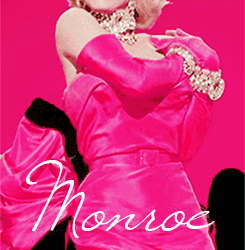
Supermodel Monique Desiree Taitague
#giphy#film#vintage#retro#blonde#rip#1960s#diamonds#marilyn monroe#old hollywood#1950s#bombshell#some like it hot#golden age#gentlemen prefer blondes#bus stop#starlet#the seven year itch#diamonds are a girls best friend#somethings got to give#norma jeane#happy birthday marilyn#hollywood golden age#lzzr#happy birthday mr president#norma jeane mortenson#lzzr jewelry#hollywood starlet#norma jeane baker
40 notes
·
View notes
Text
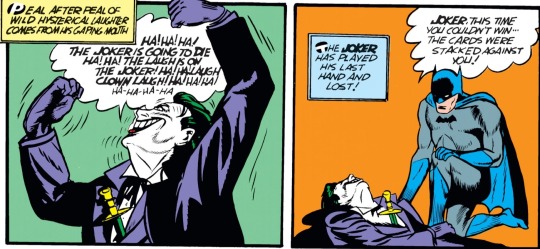
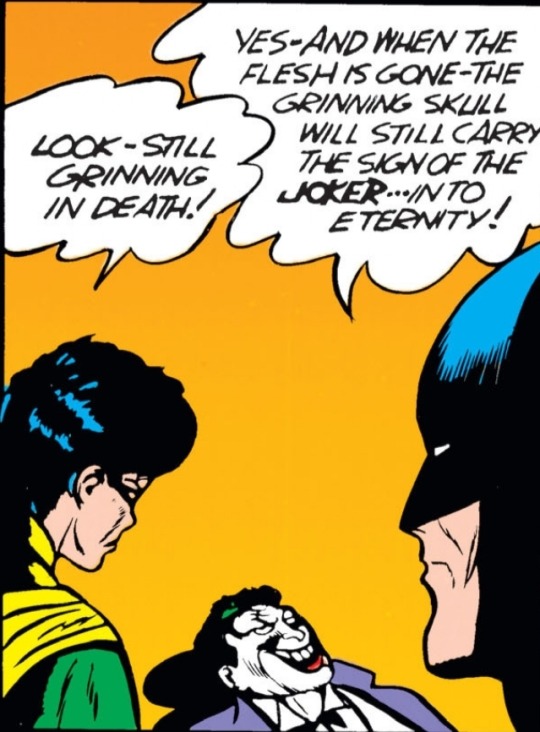
batman #1: the joker returns
#what the fuck bats 😭😭#rip to the joker tho#batman 1#the joker#dick grayson#robin#batman#golden age batman
13 notes
·
View notes
Text
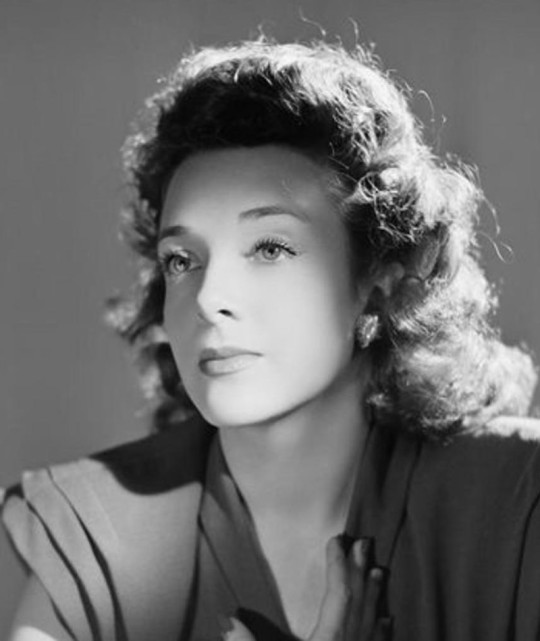
Au revoir Micheline
4 notes
·
View notes
Photo
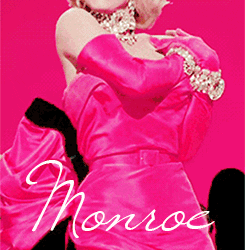
Supermodel Monique Desiree Taitague
#giphy#film#retro#vintage#blonde#rip#1960s#diamonds#marilyn monroe#old hollywood#1950s#bombshell#some like it hot#golden age#gentlemen prefer blondes#bus stop#starlet#the seven year itch#diamonds are a girls best friend#somethings got to give#norma jeane#hollywood golden age#happy birthday marilyn#happy birthday mr president#lzzr#norma jeane mortenson#lzzr jewelry#hollywood starlet#norma jeane baker#moniquedesireetaitague
15 notes
·
View notes
Text
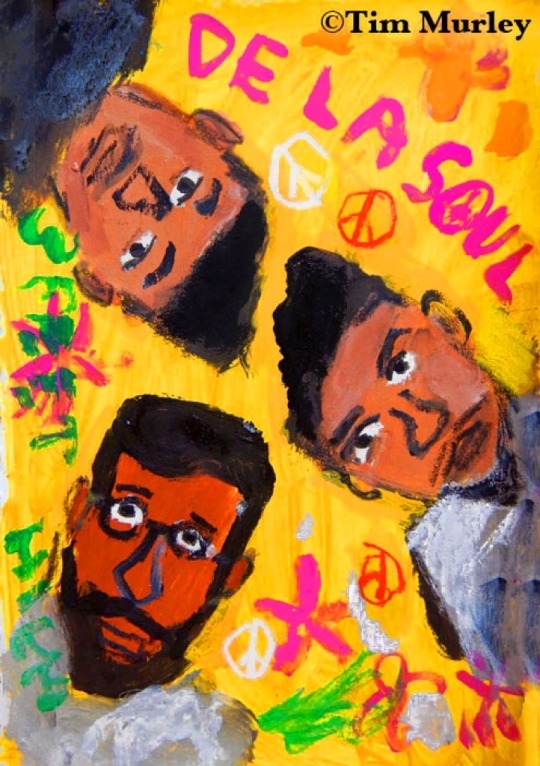
De la soul. 🌸🌼🪷🎋🌺🎵
#de la soul#tribe called quest#trugoy#rip trugoy#trugoy the dove#old school hip hop#golden age hip hop#golden era hip hop#80s hip hop#90s hip hop#strong island#long island#vinyl art#album art#bboy#bboystyle#bboylife#bboying#mixtapes#public enemy#jazz music#james brown#daisy age#3 feet high and rising#me myself and i#hip hop culture#hip hop community#hip hop music#yo mtv raps#vinyljunkie
51 notes
·
View notes
Photo
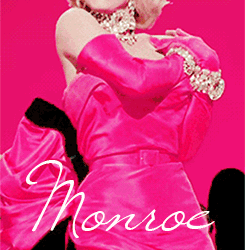
Supermodel Monique Desiree Taitague
#GIFER#marilyn monroe#happy birthday mr president#film#happy birthday marilyn#some like it hot#blonde#1950s#vintage#old hollywood#diamonds#diamonds are a girls best friend#rip#retro#1960s#bombshell#gentlemen prefer blondes#bus stop#the seven year itch#golden age#starlet#somethings got to give#hollywood starlet#norma jeane#norma jeane mortenson#lzzr#lzzr jewelry#norma jeane baker#hollywood golden age gif#gifs
9 notes
·
View notes
Text
so for the books (and my own benefit) i need to watch a lot of golden age of mexican cinema films, of that which i'm the most familiar with Pedro Infante's stuff. it's been slow going because none of this shit is very accessible and at this point in my life I understand Japanese wayyyy the hell better than whatever Spanish I left behind but it'll have to do when there are films that have no subtitles, english, spanish, or otherwise (weeps)
anyway one film i grew up with was La Tercera Palabra (1955) which is not dissimilar to My Fair Lady in some regards. unfortunately while this film was uploaded to youtube about 2 years ago and has nearly a million views, the most recent printing of the film is a 2003 DVD and the criterion collection has like. 1, soon 2 films from this era of Mexican history (for a total of 12 Mexican films at least one if not two of which are del toro's which, don't get me wrong dude. favorite living director. BUT, you feel me. when their French and Japanese and Italian lists sprawl for 90, 100, 200 entries and then there's this wholeeee classical era of a neighboring country's films not--ok rant for a different time)
point being, i THOUGHT the dvd i grew up with, that 2003 printing, had subtitles, if not in english then in spanish. probably not in english. i put in a request at my library like "hey can you find this film with english subs for me please bc it's not just me but my roommate wants to watch it after i hyped it up and the criterion collection--okay RANT FOR ANOTHER TIME". this occurred at 2am. 2 hours later i realize in despair no that 2003 dvd doesn't have eng subs, no release of the film has eng subs anywhere and i'm suddenly struck with the horror that i've only ever seen the film in pure spanish when i thought i had a guideline. so i send another despairing letter to the library like "please disregard that. i'm not drunk but i'm in despair."
well they got it for me anyway, same DVD from my childhood. i tottered home with it yesterday and popped it in and watched it and reader there were no spanish subs either. PURE 1955 audio quality spanish. how did i watch this as a kid.
it was extremely painful to watch as an adult. film is a visual medium so i did understand a lot of story beats, like, you know, i know they're falling in love in this scene. i have no idea why though. some jokes i got. but they were also easy to get. i understood the gist of the plot because i had seen it before (and no thanks to wikipedia, look at this awful stub of an english page. it lists only Sara Garcia as starring, but she's not EITHER of the two main roles, one of which is Marga Lopez (the protagonist) the other of which is Pedro Fucking Infante. yes i have plans to dress up that page at some point because christ this is bad)
either way it's still a fantastic film imo. you can watch it here if you like. the benefit to my viewing is that it's almost 1:1 how Vel watches the film on his tia's massive VHS collection of pedro infante movies, complete with "i get the film and some of the spanish but i can't quote anything nor truly understand the artistry of the dialogue".
#the fact that i'm going to be the wikipedia editor for this extremely specific film#rips face off#la tercera palabra#pedro infante#golden age of mexican cinema#the psychologist character is fucking kickass kudos to him and his singular scene#i think i'm gonna track down el inocente next#THIS IS HOW MY WEEKEND WENT#I WATCHED CRONOS 1993 AND THIS
5 notes
·
View notes
Text
The Golden Age is getting absolutely decimated right now. I mean, I kinda expected that for a lot of these but it still makes me sad for my grandpas 🥺😭
#is the golden age going to be eliminated in the first round??? the best contenders are Alan Jay and Billy#if Alan Scott Jay Garrick and Billy Batson don't pull through then the Golden Age is just out#rip the oldies
25 notes
·
View notes
Text
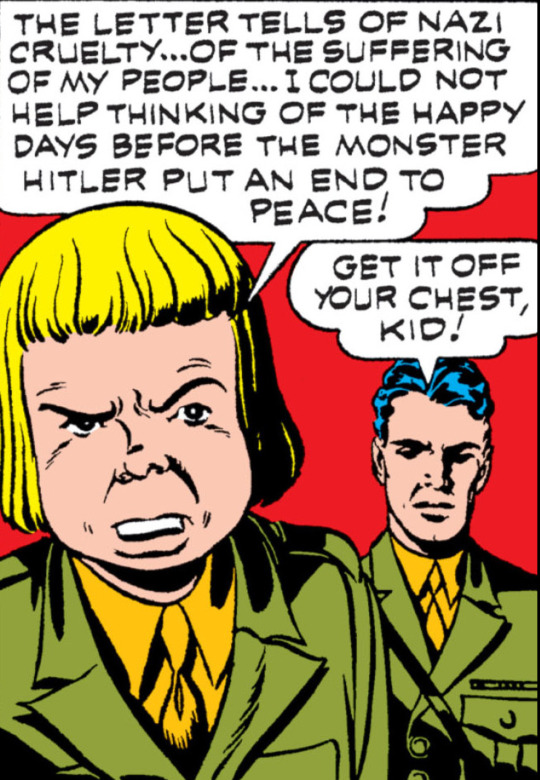
Get it off your chest, kid!
(Boy Commandos #1)
#boy commandos#Jan haasan#rip carter#first appearance#Adolph Hitler#get it off your chest#world war 2#war comics#jack kirby#joe simon#dc comics#comics#40s comics#golden age comics
3 notes
·
View notes
Text
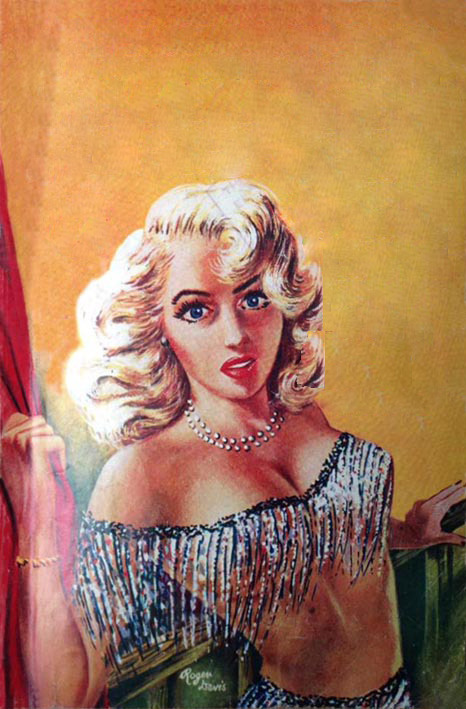
book cover - Hold That Tiger - 1952
Roger Davis
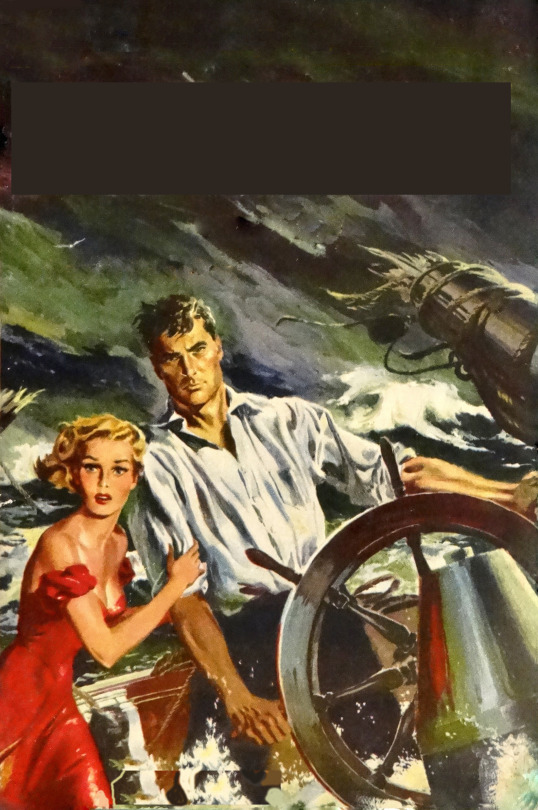
book cover - Rip Tide - 1952
Barye Phillips
#golden age art#book cover art#pulp art#pulp art 1952#Hold That Tiger#Roger Davis art#Rip Tide#Barye Phillips art#byronrimbaud
4 notes
·
View notes
Text
THE NEW GOLDEN AGE #1
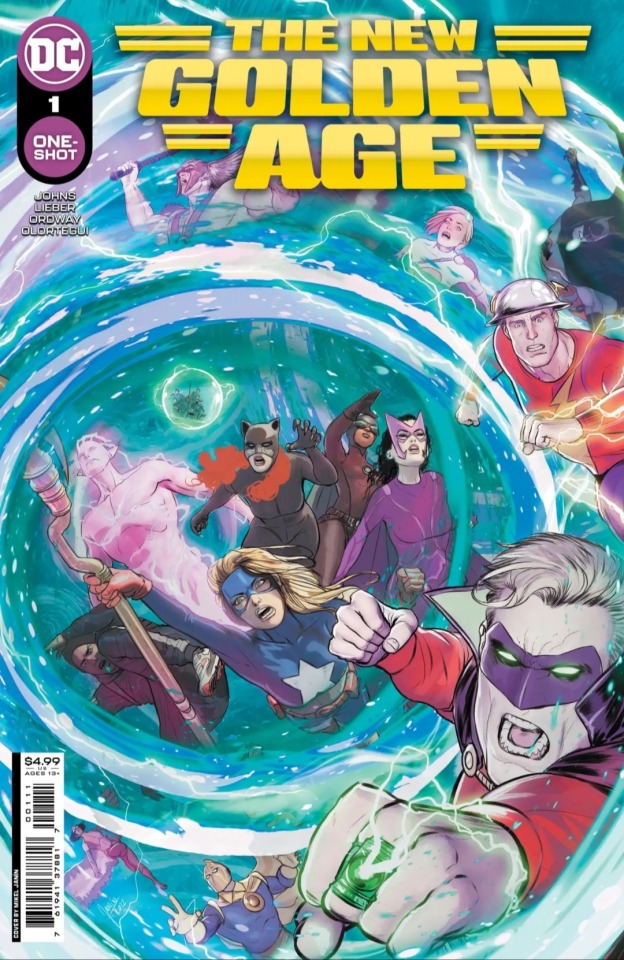
From the Justice Society of America to the Legion of Super-Heroes, The New Golden Age will unlock DC's epic and secret-ridden history of heroism, launching a new group of titles set firmly in the DC Universe. From the 1940s to the 3040s, heroes take on the great evils of their time. But in the aftermath of Flashpoint Beyond, those heroes and villains will have their lives turned upside down. DC's future…and its past…will never be the same again. But how are Mime and Marionette connected to this? Why are Rip Hunter and the Time Masters the most unlikable heroes in the DC Universe? And who or what is…Nostalgia? Don't miss the start of the strangest mystery to have ever plagued the DC Universe.
Written by Geoff Johns
Art by Steve Lieber, Jerry Ordway, and Diego Olortegui
Cover by Mikel Jańin
Available at your local comic shop and online TODAY
Variant covers:

Todd Nauck variant

Jay Hero variant
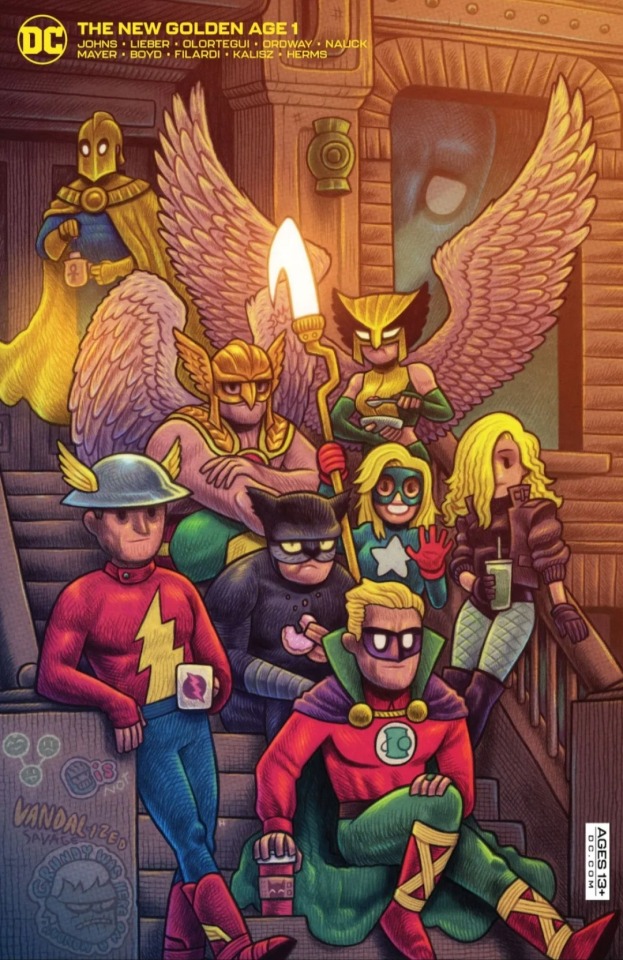
Dan Hipp variant (1:25)

Michael Allred foil variant (1:50)

David Talaski foil variant (1:100)
The original solicitation mentions a Gary Frank variant, but no images have been released yet.
Full preview from this issue is below the cut:

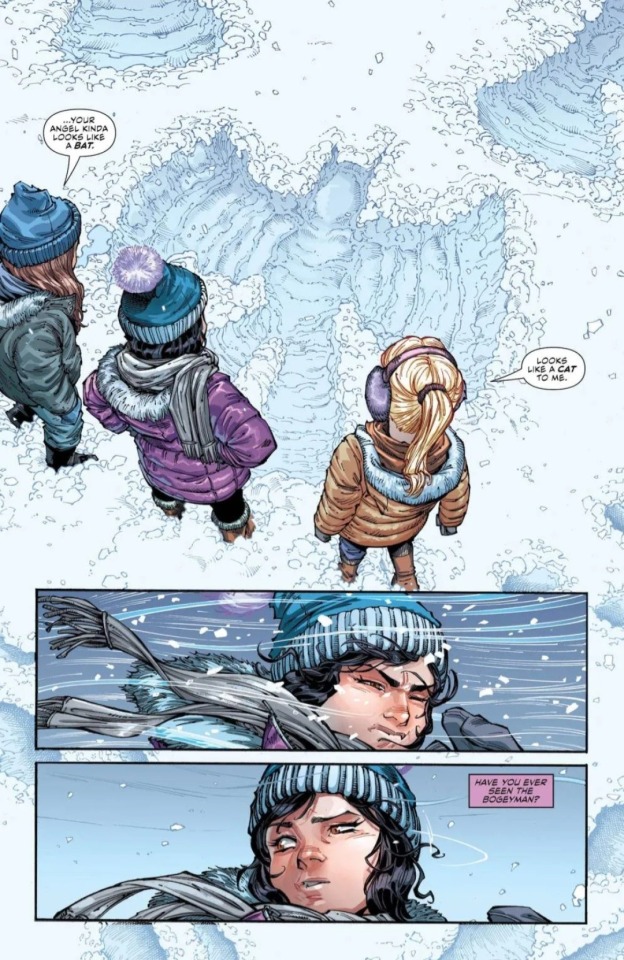



#dc comics#justice society of america#jsa#helena wayne#huntress#doctor fate#green lantern#batman#rip hunter#stargirl#the flash#the new golden age#new releases#long post
21 notes
·
View notes
Photo
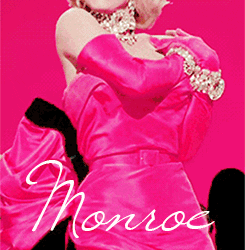
Supermodel Monique Desiree Taitague
#giphy#film#vintage#retro#blonde#rip#1960s#diamonds#marilyn monroe#old hollywood#1950s#bombshell#some like it hot#golden age#gentlemen prefer blondes#bus stop#starlet#the seven year itch#diamonds are a girls best friend#somethings got to give#norma jeane#hollywood golden age#happy birthday marilyn#lzzr#happy birthday mr president#norma jeane mortenson#lzzr jewelry#hollywood starlet#norma jeane baker
7 notes
·
View notes